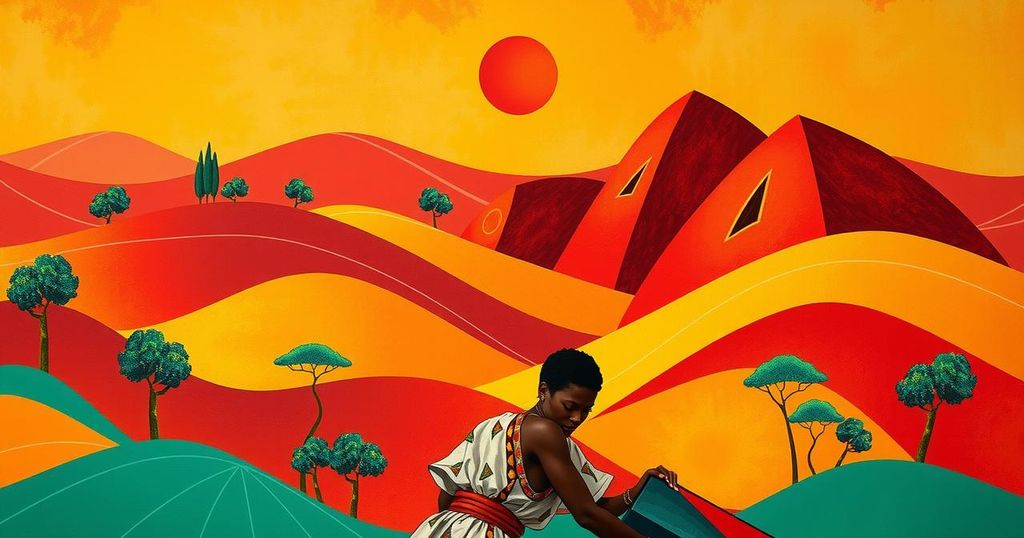Namibia Elections Showcase Shifts in Power Dynamics Across Africa

Namibia’s ruling party, Swapo, retains power but faces losses; opposition challenges legitimacy amid irregularities. Sub-Saharan Africa experiences a year of electoral upheaval, with incumbents frequently losing ground due to economic mismanagement and a rise in organized opposition. Electoral setbacks signify a broader trend towards resilience and demand for accountability in African democracies.
The recent elections in Namibia have yielded mixed results for the ruling party, Swapo, which has maintained power after over 30 years but has seen its control loosened. Netumbo Nandi-Ndaitwah, the Swapo candidate, won the presidential election with 57% of the vote, marking a historic moment as she becomes the country’s first female leader. However, opposition parties are contesting this outcome due to alleged irregularities and logistical problems during the voting process.
Swapo’s challenges reflect a broader trend among ruling parties in sub-Saharan Africa facing significant electoral losses this year. This year, elections under democratic conditions have frequently resulted in ruling parties either losing their parliamentary majority or entire control. Contributing factors include economic downturns, increasing public intolerance for corruption, and the rise of organized opposition parties.
Some notable electoral defeats this year include the Botswana Democratic Party (BDP), which, after ruling since independence in 1966, suffered a substantial loss, securing only 4 out of 69 parliamentary seats. Similarly, the governing party in Mauritius faced a historic defeat with the opposition Alliance du Changement gaining 60 of the 66 available seats, reducing the ruling coalition’s power dramatically.
In Senegal, significant political changes were also observed as opposition leaders were released from incarceration shortly before elections, leading to a stunning victory for the main opposition candidate, Bassirou Diomaye Faye, who secured the presidency with a commanding vote. Even in regions where incumbents did not lose power, their hold on authority has weakened significantly, as seen with South Africa’s African National Congress (ANC), which struggled to surpass 50% in national elections for the first time since 1994.
Various factors have contributed to this year’s electoral turmoil, including widespread public discontent regarding economic management and governance issues. In many nations, there has been growing dissatisfaction with the perceived ineptitude of incumbent administrations, largely influenced by rising living costs and corrupt practices. Youth-led protests in Kenya further exemplify this sentiment.
This trend is not isolated to Africa; it reflects a global phenomenon where citizens express discontent over economic hardship, as evidenced in other countries such as the UK and the United States. In Africa, however, the opposition has increasingly adapted by closely monitoring the electoral process and forming coalitions to enhance their chances of success, exemplified by the Umbrella for Democratic Change in Botswana.
Looking ahead, the upcoming elections in Ghana could present further challenges for the ruling New Patriotic Party (NPP). Should Ghana experience a shift in power, it would mark a record five opposition victories in 2024. Despite the backdrop of declining global democracy, Africa’s electoral resilience suggests a potent desire for accountability and political change, making the region a fascinating case study for democratic recovery.
In conclusion, the recent electoral outcomes in Namibia and broader trends across sub-Saharan Africa indicate a significant shift in political dynamics, with ruling parties increasingly facing discontent and losses. Factors such as economic hardship, corruption, and cohesive opposition strategies contribute significantly to these developments. The resilience exhibited by African citizens and civil society in demanding accountability highlights an essential narrative where democracy is thriving against the odds, meriting increased global attention and support for these emerging democratic movements.
Original Source: www.bbc.com







